Iqbal: An Intellectual with a Vision and Mission (Part One)
A brief Biographical Sketch
Iqbal, who was well-known by the title Allama Mohamed Iqbal, was born on 22nd Feb.1873, in Sialkot, a place in northern India. His roots go back to his ancestors, who originated from the region of Kashmir in the Indian subcontinent. Prior to their conversion to Islam, his ancestors belonged to the upper-class Brahmin of the Hindu caste system. They were guided towards the religion of Islam by the preachings of Syah Hamdani, a pious religious personality who lived during the time of the last ruler of the Mogul dynasty. The fall of the Mogul dynasty made Iqbal’s ancestors migrate from Kashmir to Sialkot (Mohd Abbas, 1992).
Iqbal’s parents were pious and upright Muslims. His father Nur Muhammed was a tailor who practised Sufism. As a religious man, Iqbal’s father contributed a lot to the cause of the Muslim society, which pathetically lost all political and social standings under Hindu rule. As a young boy, Iqbal received his elementary education from his father and was later sent to a Sufi scholar by the name of Mir Hasan. It was from this scholar that Iqbal learnt the Islamic sciences, Arabic and Persian. When he had finished his primary level of education, Mir Hasan recommended Iqbal enrol in the Scottish Mission School. The contribution of Mir Hasan in moulding Iqbal’s character cannot be denied. As an acknowledgement of this enlightening personality of his teacher, later in life when Iqbal became an established poet, he wrote these lines to express his indebtedness toward Mir Hasan:
That light of the exalted family of Ali,
Whose threshold will always be sacred like the Ka’ba to me,
Whose breath enabled the bud of my desire to blossom.
Whose kind of enlightenment developed my critical faculty (Iqbal in Sain, 1989: 34-35).
At the Scottish Mission School, Iqbal started to show great talent in poetry in his mother tongue, Urdu. As a young amateur in writing creative poems, Iqbal used to send his works to a renowned Urdu poet by the name of Dagh (1831-1905). Dagh was one of the last famous poets of the Mogul era of India. By the time Iqbal started to write his poems, poets of his time had already shifted from their old ways of writing poems. Instead of appreciating the aesthetic beauty of the world, they wrote on contemporary issues like politics, social and national life. Dagh as a renowned poet, after going through many of Iqbal’s beautiful lines of poems, acknowledged Iqbal’s extraordinary talent and commented that his poems were of a good standard and the need to correct them was unnecessary (Ashraf Nurdin, 1985; Matthews, 1993).
In 1895, after completing his studies with excellent results at the Scottish Mission School, Iqbal went on to study at the Government College in Lahore. It was there that, Iqbal a budding poet, had the opportunity to read his poems to a gathering of students and academicians. His poems not only lured the intellectual circle of the academia but also got the attention of the local newspapers and magazines, especially Makhzan, an Urdu journal. One of his well-known poems on the Himalayas published in this journal introduced him to a wide circle of admirers all over India (Vahid, 195_).
When he was studying at the Government College, Iqbal got very close to one of his teachers, an Englishman by the name of Sir Thomas Arnold. If in Sialkot, it was Mir Hasan, who had a great influence on Iqbal in teaching him the past intellectual heritage of the Muslims, over in Lahore, it was Thomas Arnold, the cultured Englishman who was the one who introduced Iqbal to many of the positive aspects of the Western culture and civilization. It has been highlighted by many scholars that it was through his acquaintance with Thomas Arnold that Iqbal learned to be a critical scholar. As an appreciation of the contribution of this English teacher, later in life, Iqbal dedicated his doctoral dissertation to the good name of Thomas Arnold (Ashraf Nurdin, 1985).
In 1899, Iqbal graduated from the Government College with an M. A. in Philosophy. In recognizing his mastery of English and Arabic and taking into consideration of his future intellectual development, Thomas Arnold recommended Iqbal pursue his studies at Cambridge University in England. Thus, Iqbal became the first son of India, who was given a place to study in Cambridge. Over at Cambridge, he took some courses in moral philosophy under the tutelage of Dr. Mc. Taggart and Dr. James Ward. As a student of Mc Taggart, Iqbal shared many similar views with his teacher in philosophy and mysticism. During his early days in Europe, like Mc Taggart, Iqbal was also more of a pantheist in his concept of God. After finishing his course in philosophy, Iqbal intended to embark on his doctorate programme at Munich University. To earn his doctorate degree, he conducted research on mysticism and wrote a dissertation entitled ‘The Development of Metaphysics in Persia’. Prof. F. Hammel was his supervisor who guided him in his research. Upon getting his doctorate degree, Iqbal returned to England to study Law at Lincoln’s Inn. While doing his bar, he also attended lectures at the School of Political Sciences (Effendi &Hadi, 1986).
All throughout his stay in Europe, Iqbal used to meet Western scholars to discuss matters pertaining to education and philosophy. After discovering Iqbal’s potential, Western scholars, without fail used to invite him to deliver lectures on the Islamic civilization. Starting with his lecture at Caxton Hall, Iqbal delivered a series of captivating lectures at many different places in the UK. In many of the lectures he delivered, he highlighted the shortcomings of Western civilization. His thought-provoking lectures caught the attention of the Western media.
Going to Europe changed Iqbal in many ways. One marked transformation that happened to him was that he began to perceive humanity as a whole without looking at it based on colour, caste, nationality and geographical differences. This psychological makeup of a new Iqbal can be seen in his philosophy and poetry as he dedicated himself to highlighting the great culture and spiritual heritage of man. It was also around this time in Europe, that he started to think of Islam as a universal religion that can provide humanity with much-needed peace, security and prosperity. In stark contrast to his thoughts, he also witnessed that the Muslim world had many shortcomings because many did not follow the true spirit of Islam. While assessing the situation in Muslim countries, Iqbal found out that the people were caught in the meshes of superstitions, inactivity and ignorance. In his opinion, the prevalence of such scenarios caused the Muslims to dwindle in their spirit rather than pursue a dynamic way of life. In realizing the predicament of the Muslims, Iqbal wanted to bring an Islamic Renaissance by directing his philosophy and poetry aimed at awakening the Ummah from its deep slumber toward realizing the demands of the modern world. As a result of his visit to Europe, his message to the Muslims was aimed at calling them to renounce backwardness and to have a positive attitude towards scientific learning and exploration in broadening the horizon of their thinking. Iqbal became an advocate for scientific research in the Muslim world of his time. In many ways, this resembled Sir Syed Ahmad Khan, the founder of the Aligarh University of India (Kazmi, 1995).
After making a diagnosis of the problems battering the Ummah, Iqbal without any self-proclamation took on the role of a religious reformist. It was his intention to revive the Ummah of its religiosity towards Islam and to restore its dignity and glory, which were once enjoyed by it during the Golden Age of Islam. This role of Iqbal as a religious reformer was recognized by many scholars in Iqbal. Attitudes of total belief and dedication for a rightful cause and for a higher purpose in life were seen in Iqbal as a preparation for the task of bringing change. Bilgrami (1996), in his writing on Iqbal, was able to capture Iqbal’s passion and compassion in wanting to change the mindset of Muslims of his time, when he wrote:
Iqbal has rightly been called the mainspring of the Muslim renaissance. He devoted the best part of his life to the careful study of Islam, its laws, polity, culture, history and literature. He was convinced of Islam ‘as a living force for freeing the outlook of man from its geographical limitations.’ He firmly believed that ‘religion is a power of utmost importance in the life of individuals as well as states and in order to convince the word of these eternal truths he did not merely devote his life to giving expression to his thoughts and feelings in his philosophy and poetry but also passed many restless nights praying to God (iv-v).
In 1908, after completing his studies in Europe, Iqbal returned to his native India. Upon setting foot in India, he started his career as an advocate, and this happened to be his permanent profession until 1934. Besides this, as a scholar endowed with great knowledge in many different disciplines, Iqbal for a brief period of time taught Philosophy, Arabic and English Literature on a part-time basis at the Government College. His involvement in teaching did not last very long and this was not attributed to his lack of passion for teaching but mainly due to the restriction laid by the British on what to teach. This lack of freedom made Iqbal resign from his teaching activities two years after joining the Government College (Mohd Abbas, 1992).
In politics, he won the admiration of the Muslims of the Indian subcontinent. His views and ideas gave the much-needed impetus to the Muslim minority of India to demand their rights. His ideas and principles in politics were based on Islamic values, which ran parallel to some of the ideas present in humanistic philosophy. Through such ideas, he called on the Muslim Ummah to work hard, jihad (strive for excellence) and self-sacrifice in life. His relentless voice that echoed through his poems and philosophical discourse all throughout India was an admonition for the Muslims to seek freedom and to lead a dignified life. In 1922, Iqbal wrote an elegy upon hearing about the death of Queen Victoria. This was much appreciated by the then Governor of Punjab Sir Edward Maclegan and the British government. In recognition of his contributions to politics and scholastic works, the British government conferred the knighthood upon him, which carried the title ‘Sir’ (Ali, 1988).
In 1927, Iqbal was elected as a legislative member of the state of Punjab. Three years later, in 1930 he was elected as the President of the Muslim League of India. It was during that time as a president, that he suggested ways and means how to solve the communal crisis faced by both the Hindus and Muslims of India. In 1931 and 1932, he was invited by the British to attend the Round Table Conference in London. These two meetings were initiatives taken by the British government to draft a constitution for the good use of the people of the Indian subcontinent to resolve their communal problems (Ashraf Nurdin, 1985).
In finding a solution to the conflict between the Hindus and the Muslims, Iqbal was the first leader in the Indian political arena who boldly proposed the formation of Pakistan as a homeland for the Muslims. In his efforts to establish Pakistan, he went through the Muslim League, an organization that stood for Muslim rights and solidarity. Iqbal in addressing the Muslim League at Allahabad in 1930 articulated his concept of a homeland for the Muslim society of the subcontinent by stating the proposed regions to be included. He stated:
I would like to see the Punjab, North-West Frontier Province, Sind and Baluchistan amalgamated into a single state. Self-governed with the British Empire or without the British Empire; the formation of a consolidated North-West Indian Muslim state appears to me to be the final destiny of the Muslims, at least of North-West India (Iqbal in Sayeed, 1968:103).
In proposing a homeland for the Muslims, Iqbal envisioned a free state for them to live without any intimidation from the other races of India and a place whereby the Muslims can adhere to the Muslim way of life. He also wanted the place to cater for the Islamic culture to bloom and flourish. All of Iqbal’s hard work and strenuous efforts in politics were highly appreciated and praised by Muhammad Ali Jinnah, one of Iqbal’s friends who played an important role in the Muslim League. Upon hearing the death of Iqbal, Jinnah mourned the death of his friend in the following words:
"I am extremely sorry to hear the sad news of the death of Sir Mohammad Iqbal. He was a remarkable poet of worldwide fame and his work will live forever. His services to his country and the Muslims are so numerous that his record can be compared with that of the greatest Indian that ever lived. He was the President of the Provincial Muslim League of the Punjab, till a very recent time when his unforeseen illness compelled him to resign, but he was the staunchest and the most loyal champion of the policy of the All-India Muslim League. To me, he was a friend, guide and philosopher and during the darkest moments through which the Muslim League had to go, he stood like a rock and never flinched one single moment." (Jinnah and Ahmad, 1992: 249).
As a reformist and educationist, Iqbal’s ideas were not just relevant to India alone. His ideas also found validity in neighbouring Afghanistan. In 1933, he was invited together with Sir Ross Masood and Sulaiman Nadvi by the Government of Afghanistan to re-evaluate the educational system in the country and to suggest some changes to improve the educational system at Kabul University (Azzam, 1985).
(Dr.Mohd Abbas Abdul Razak is Assistant Professor, Dept. of Fundamental & Inter-Disciplinary Studies Kulliyyah of Islamic Revealed Knowledge & Human Sciences, IIUM)
Disclaimer
The views expressed in this article are the author’s own and do not necessarily mirror Islamonweb’s editorial stance.

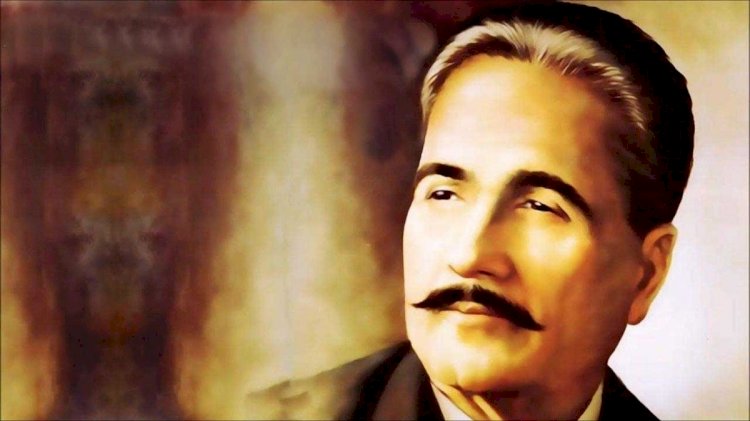


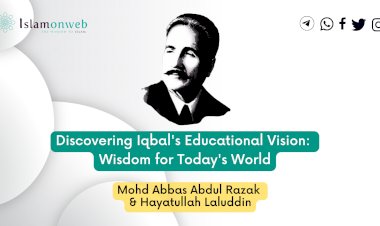
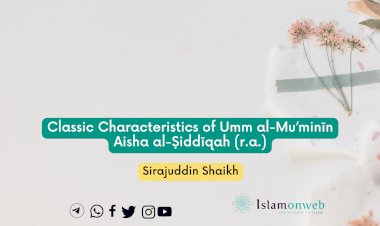
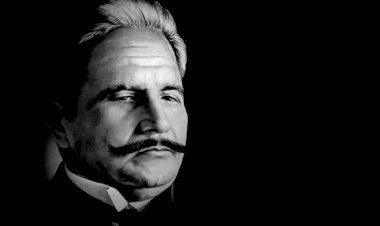
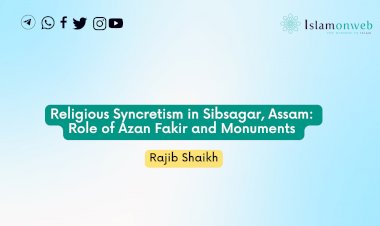
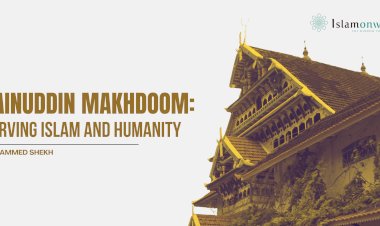
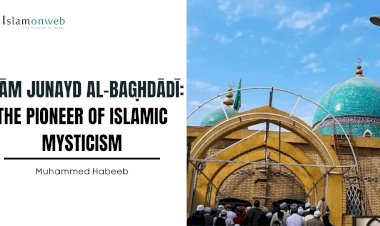














Leave A Comment